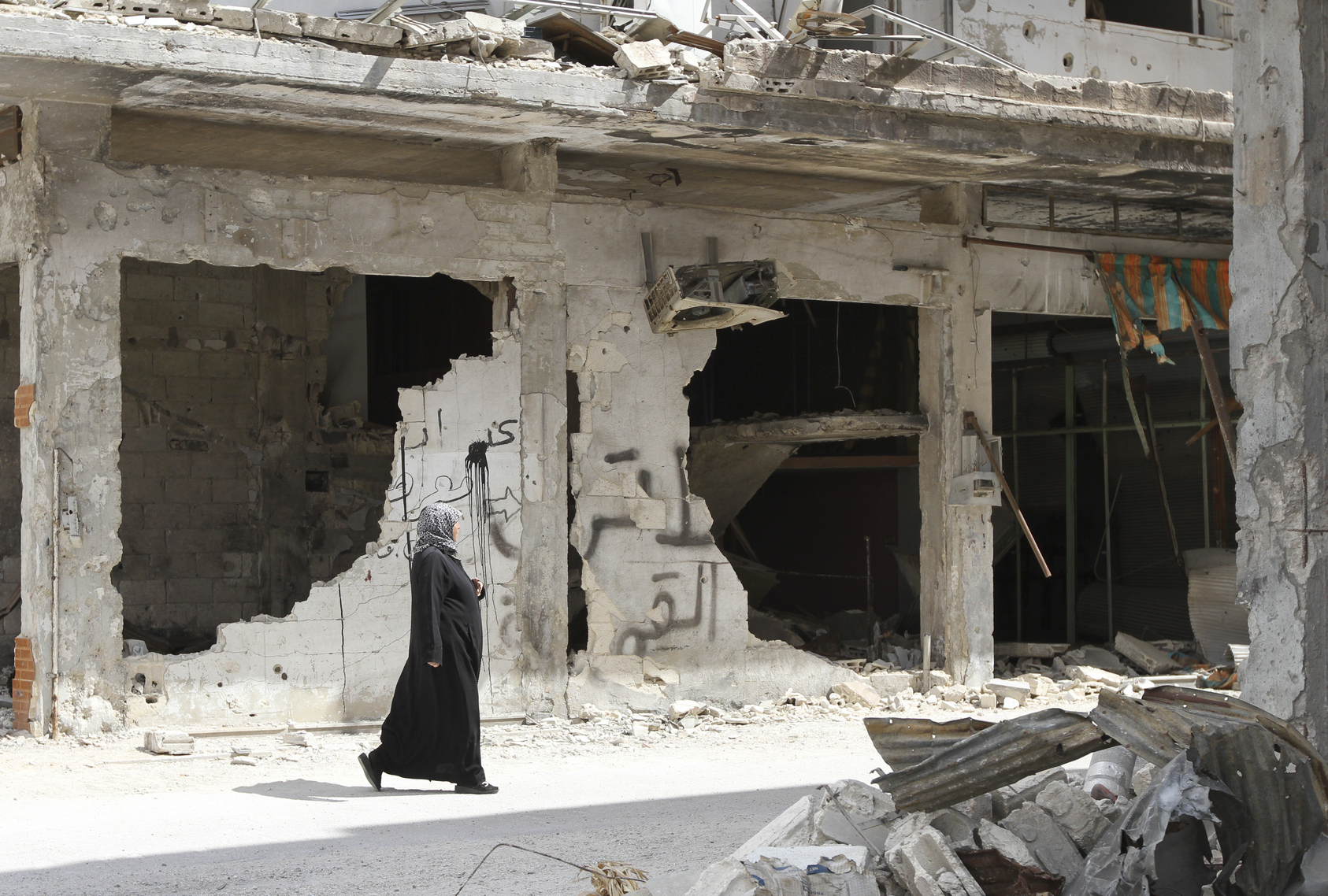Plans to remove duty of care for British soldiers branded as ‘shameful’

Homs, Syria – September 22, 2013: A woman walks near a house in the city of Homs destroyed in the fighting between the rebels of the Syrian National Army
Proposals by the Ministry of Defence (MoD) to abolish the duty of care owed to service personnel have been strongly criticized by lawyers. Responding to the Government’s ‘Better combat compensation’ consultation, human rights lawyers argue that the plans, which propose a new widened concept of ‘combat immunity’, would prevent injured soldiers and families of those killed in combat from pursuing legal redress for negligence and effectively shield the MoD from scrutiny by the courts for negligence in combat-related deaths and injuries.
The consultation, which closes on February 23, proposes introducing a ‘no fault’ compensation scheme for injured soldiers and families of those killed, and denying paid legal representation for service personnel when losses and compensation are assessed. It is argued that the proposals’ heavy focus on compensation comes at the expense of removing vital legal protections from soldiers. According to the MoD, the proposals ‘would mean many more individuals and families would benefit from these larger awards, and unnecessary legal costs, delay and stress associated with litigation could be avoided’.
Jocelyn Cockburn, solicitor at Hodge Jones & Allen, which responded to the consultation highlighting its concerns, labeled the move as a ‘shameful’ response by the military to the highly critical Chilcot report. ‘There is… a very real risk that by removing this duty of care the MoD will not learn any lessons from Chilcot and without the scrutiny of courts, the MoD will not be transparent about their failings,’ she says. Cockburn pointed to the ‘very closed attitude’ of the MoD towards admitting mistakes and accepting scrutiny, and warned that, without the scrutiny of the courts, transparency in the Ministry’s failings will be lost.
The Law Society has raised concerns over the proposed new definition of combat immunity. ‘For instance, if it is inappropriately extended in this way it could cover any UK-based operation in preparation for war, such as the ordering of Snatch Land Rovers or a training exercise in the Brecon Beacons,’ commented Society president Robert Bourns. ‘A decision about equipment or training, made from a desk in Whitehall, should be subject to the same scrutiny as similar decisions about specialist training or equipment made by other employers.’
In 2013, Jocelyn Cockburn, along with others, successfully took the government to the Supreme Court to secure a duty of care for all British troops on active service abroad. The ruling in the case against the MoD, in which Cockburn represented the families of soldiers killed in poorly armoured Snatch land rover vehicles in Iraq to bring claims for damages for negligence and breaches of the Human Rights act, established for the first time that the European Convention on Human Rights applies to soldiers on the battlefield.
‘If the MoD are immune from legal action there is a real risk that safety standards will fall. During the course of the Snatch Land Rover litigation the government tried to persuade the court not to impose any duty on the MoD to protect its troops. This argument failed and was patently unreasonable. Parliament should give any such bill short shrift.’
Jocelyn Cockburn, Hodge Jones & Allen
Lawyer Shubhaa Srinivasan of Leigh Day, who represented the ‘Challenger claimants’ , families of soldiers who died as a result of failures to properly equip them and their Challenger tanks from friendly fire attack in the 2013 case, said the recent consultation plans amounted to a ‘get out of jail free’ card for the MoD. ‘The Government’s proposals offend the fundamental principle of the rule of law in that everyone – including the Government – should be legally accountable for their actions and subject to enforcement by an independent body such as the judiciary,’ Srinivasan said.
‘Soldiers have no recourse to impartial investigation of their cases and establishment of responsibility by an independent judge,’ she continued. ‘The court process ensures that where an employer goes wrong there is an element of public scrutiny which helps ensure that improvements to standards are made. These proposals amount to nothing short of soldiers and their families being told by their employer that they are shut out of our justice system.’
Srinivasan was sharply critical of the proposal to remove the presumption of legal representation for service personnel: ‘Often soldiers injured in battle will receive very severe injuries and it is appalling that they would be expected to fight for the compensation they need without the help of specialist legal representation.’ Cockburn echoed this concern, arguing that soldiers attempting to seek redress from the Ministry of Justice are ‘often vulnerable and traumatised… some will have catastrophic injuries. They cannot be expected to navigate the process without legal representation’.






